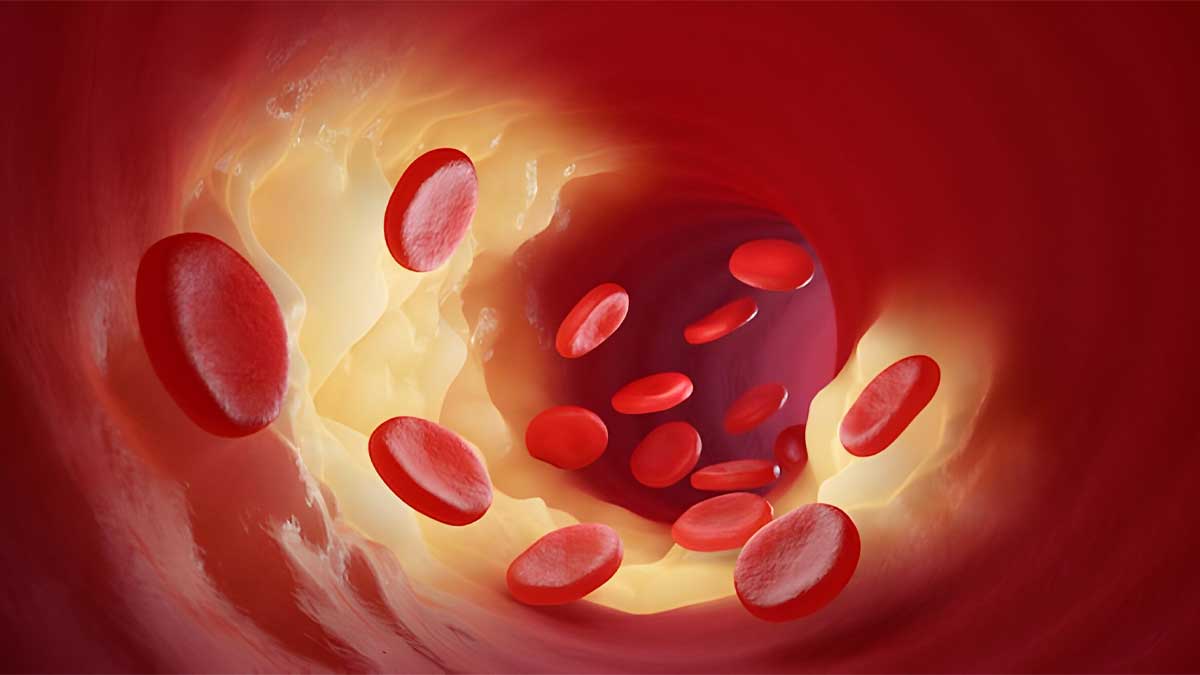
Do you know what can happen if triglyceride level of blood gets high? Elevated triglyceride levels often result from unhealthy lifestyle factors, including poor dietary choices, lack of physical activity, and obesity.
Table of Content:-
"Triglycerides are a type of fat found in the bloodstream. Any extra calories your body does not use right away are turned into triglycerides and stored in your fat cells to meet future energy demands,” said Dr Saritha Sekhar, Associate Professor and Consultant Interventional Cardiologist, Amrita Hospital, Kochi.
Symptoms of High Blood Triglycerides
Unlike some health conditions, high blood triglycerides typically do not present noticeable symptoms on their own. Instead, they are often visible as part of a larger issue, such as metabolic syndrome or cardiovascular disease. It's important to be aware of risk factors and regularly monitor triglyceride levels through blood tests. Common Symptoms And Risk Factors Include:
- People who are overweight, especially around the belly, are more likely to have high triglyceride levels.
- High triglycerides can be caused by a diet high in refined carbohydrates, sweets, and saturated fats.
- Sedentary lifestyles are associated with higher triglyceride levels. Regular exercise can help to keep these levels in check.
- Diabetes, hypothyroidism, and kidney illness can all cause an increase in triglyceride levels.
Best Ways to Lower High Blood Triglycerides
According to the National Heart, Lung, and Blood Institute (NHLBI) in the United States, high blood triglyceride levels are highly prevalent, affecting up to one in every four persons. High blood triglycerides can be caused by a variety of medical illnesses, medications, genetic factors, and lifestyle choices.

Make changes In Your Dietary Pattern
It is advisable to focus on a heart-healthy diet rich in fruits, vegetables, whole grains, and lean proteins.Limiting intake of saturated and trans fats found in fried foods, processed snacks, and red meat can help in reducing high blood triglycerides. Reduce consumption of refined carbohydrates and sugars, including sugary beverages.
Weight Management
Achieve and maintain a healthy weight through a combination of a balanced diet and regular exercise.
Limit Alcohol Intake
Excessive alcohol intake can contribute to elevated triglycerides. The National Library of Medicine says, “ high alcohol consumption is dangerous because it is linked to not only higher plasma triglycerides, but also cardiovascular disease, alcoholic fatty liver disease, and the development of pancreatitis.”

Quit Smoking
Smoking is a significant risk factor for cardiovascular disease. Quitting smoking can contribute to overall heart health.
High blood triglycerides are a major risk factor for cardiovascular disease, and treating them as soon as possible is critical for maintaining cardiovascular health. Individuals can effectively lower their triglyceride levels and reduce the risk of related issues by adopting a healthy lifestyle, making dietary adjustments, and obtaining medical guidance when necessary.
Also watch this video
How we keep this article up to date:
We work with experts and keep a close eye on the latest in health and wellness. Whenever there is a new research or helpful information, we update our articles with accurate and useful advice.
Current Version